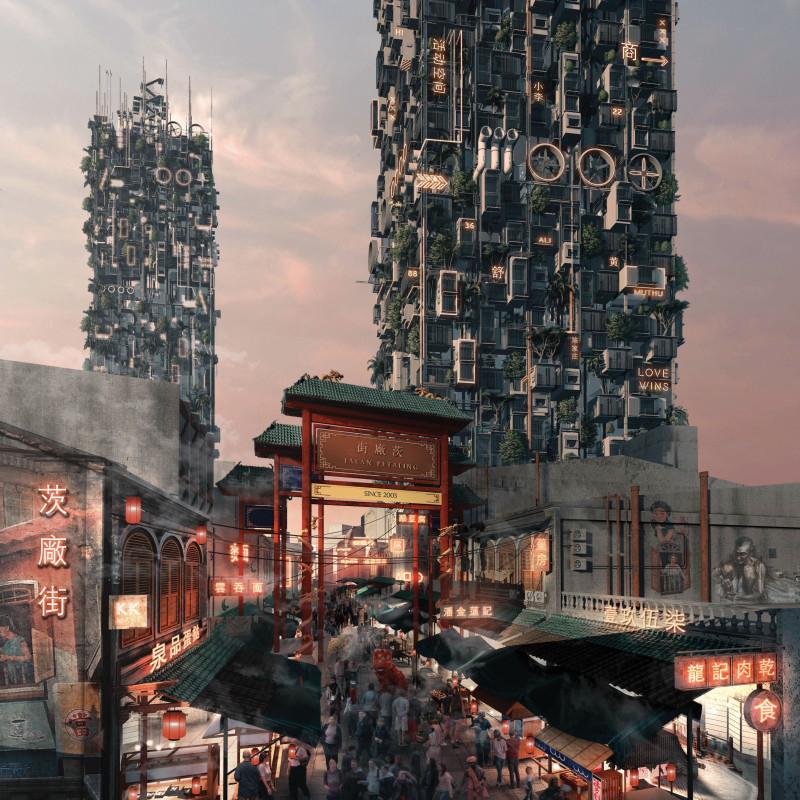5 key facts about this project
Affordable housing is becoming increasingly important for young professionals and millennials in Kuala Lumpur, Malaysia. Located in historically rich areas like Chinatown and Medan Pasar, the design of new living spaces aims to meet the needs of urban dwellers. It focuses on creating social connections through shared spaces, enhancing community life while revitalizing these urban neighborhoods.
Community Interaction
The design emphasizes communal areas that promote social engagement among diverse groups. Local residents and newcomers can come together in these shared spaces, fostering relationships that strengthen the community. By organizing the layout to encourage interaction, the project helps address housing needs while creating an environment that supports meaningful connections.
Sustainability Measures
An essential aspect of the design is its commitment to sustainability, reflected in the incorporation of off-grid systems. While specific materials are not detailed, the proposal suggests the use of environmentally friendly construction techniques. Off-site prefabrication is mentioned as a way to reduce waste, cut down on construction time, and lessen costs. This aligns well with the values of a younger audience that emphasizes sustainable living.
Historical Context
The decision to develop in areas like Chinatown and Medan Pasar allows for a blend of tradition and modern needs. The design respects the character of these neighborhoods, aiming to breathe new life into their historical context. By enhancing the existing urban fabric, the project encourages a vibrant community while honoring the past.
Design Detailing
Attention to detail is evident in various architectural elements that contribute to livability. The design includes flexible housing options, accommodating different household types and sizes. Natural light and ventilation are prioritized, creating comfortable indoor environments. This focus on practical design enhances daily living, ensuring that residents enjoy a supportive and efficient space.





















































